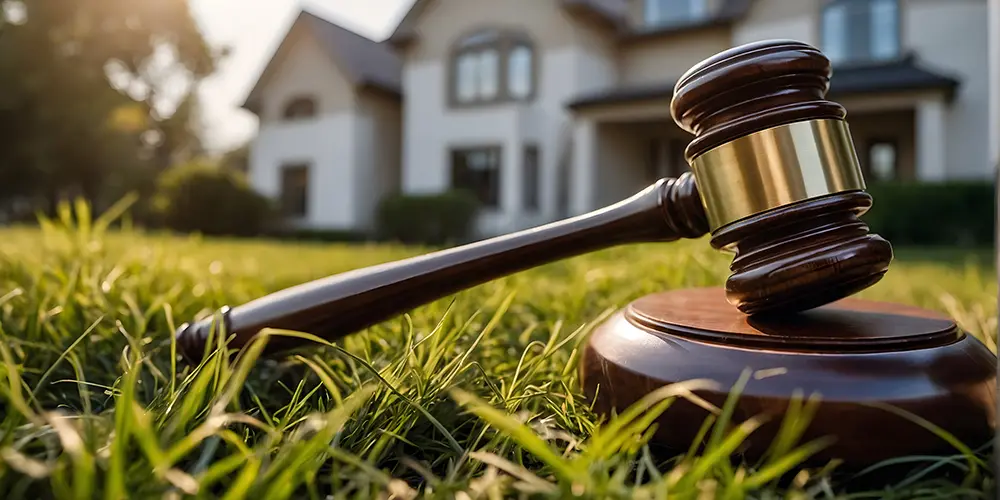When homeowners violate the rules, they can face HOA fines. Can a homeowners association charge fines in the first place? What does the HOA do with the money it collects from these fines? It is important to understand the legality of fines and the requirements that follow. Both board members and homeowners will benefit from educating themselves.
What are HOA Fines?
One of the primary responsibilities of an HOA is to enforce community rules. Homeowners are obligated to follow these rules, provided they are reasonable and enacted in a procedurally correct manner. When a homeowner violates a rule, their HOA can potentially impose a monetary penalty, also known as fines.
Fines serve as a way for an HOA to enforce the rules. They do this by discouraging homeowners from committing violations or continuing to commit the same violation.
Since homeowner association fines act as a deterrent, it is important to set them at a reasonable amount. If fines are too expensive, they might be unreasonable. On the other hand, if fines are too cheap, homeowners might just risk the violation.
Can a HOA Fine You?
Whether or not an HOA can fine homeowners depends on state laws and its governing documents. In Texas, no law automatically gives an HOA the authority to levy fines. Instead, an HOA’s governing documents must explicitly grant this power.
Additionally, Texas law (Section 209.0061) requires HOAs with the authority to levy fines to develop an enforcement policy. The HOA board must make this policy available to all homeowners.
Do You Have to Pay HOA Fines?
 If an HOA has the authority to levy fines and a homeowner has committed a violation, then they must pay the fine. Typically, the HOA will send a written notice of the violation and give the owner an opportunity to be heard. After that, the board can decide whether or not to pursue the fine.
If an HOA has the authority to levy fines and a homeowner has committed a violation, then they must pay the fine. Typically, the HOA will send a written notice of the violation and give the owner an opportunity to be heard. After that, the board can decide whether or not to pursue the fine.
Should the HOA board continue with the fine, the homeowner must pay it. Certain consequences can follow if the homeowner fails or refuses to pay their fine. These include late charges, interest, and legal action. In some states, an HOA can even place a lien and foreclose on a home due to unpaid fines.
Requirements for HOA Fines for Violations in Texas
According to Texas Property Code Section 209.006, an HOA must provide written notice to a homeowner via certified mail before levying a fine. This will give the homeowner a chance to remedy the violation and contest the fine. Notice may not be necessary for repeat violations.
In Texas, the written notice must consist of the following information:
- A description of the violation;
- The amount of the proposed fine;
- A statement explaining the owner’s right to request a hearing within 30 days before the board;
- Information about any special legal protections the owner may have, such as those under the Servicemembers Civil Relief Act; and,
- If the issue is not a threat to health or safety and is “curable”, the notice must give a reasonable deadline to fix it and avoid the fine, along with the specific date by which the correction must be made.
Here are examples of curable violations:
- Violations of parking rules
- Maintenance violations
- Starting a construction project that doesn’t match approved plans
- Repeated noise issues, like a constantly barking dog
HOA Fine Policies in Texas
According to Section 209.0061 of the Texas Property Code, an HOA with the authority to levy a fine must have an enforcement policy. This enforcement policy should include the following:
- The types of rule violations that can lead to fines (like parking, noise, or lawn issues);
- A list of fine amounts for each type of violation; and,
- Details about the hearing process that owners can use to contest a fine (as described in Section 209.007).
The policy can also give the board the right to adjust fines from the set list depending on the situation.
The HOA must make sure homeowners receive a copy of the fine policy in one of these ways:
- By posting it on the HOA’s private website (accessible only to members); or,
- By sending it once a year through hand delivery, first-class mail to the owner’s last known address, or email (if the owner gave their email to the HOA).
The HOA also has to post the fine policy on any public website it maintains.
What Happens if You Don’t Pay HOA Fines?
When homeowners fail to pay fines, several consequences may follow. Of course, specific HOA penalties can vary depending on state laws and the governing documents of the community. Some of them include:
- Late Charges or Interest. Unpaid fines can accumulate additional charges, increasing the amount the owner owes.
- Suspension of Rights. The HOA may temporarily suspend the homeowner’s rights to use the community amenities and even vote in elections or meetings.
- Collection Actions. The HOA can send the account to collections or hire an attorney to recover the debt. This can affect the homeowner’s credit score.
- Lawsuits. The HOA might file a lawsuit to collect the unpaid amount. If the court rules in favor of the HOA, the owner may also have to pay court costs and legal fees.
- Liens. In many states, unpaid fines can result in a lien against the property. Homeowners must settle this lien before they can refinance or sell their home.
- Foreclosure. If the fines remain unpaid and become part of a lien, the HOA may eventually foreclose on the home. It is worth noting that some states limit this option, especially for small amounts.
Where Does the Money From HOA Fines Go?
 The HOA’s governing documents should indicate where the board must deposit the money from fines. Typically, they go into the operating account or a separate account. The governing documents should also outline how fines must be handled, which can include the following:
The HOA’s governing documents should indicate where the board must deposit the money from fines. Typically, they go into the operating account or a separate account. The governing documents should also outline how fines must be handled, which can include the following:
- Operating Budget. Fines can help pay for operating expenses. While fines can help boost the association’s budget, they should not be treated as a primary source of revenue or used to generate a profit.
- Enforcement. Some HOAs allocate fine money specifically to cover enforcement-related expenses such as legal fees and administrative costs.
- Designated Funds. If permitted, an HOA might place the fine revenue into a designated account such as a contingency fund.
A Two-Way Street
Although they are another form of payment, HOA fines do serve an essential purpose. They help ensure compliance with HOA rules, which can have a significant impact on the quality of life and property values. Ultimately, by adhering to the rules, homeowners can contribute to their community’s thriving.
Graham Management provides exceptional and reliable HOA management services to Houston communities. Call us today at (713) 334-8000, request a proposal, or contact us online to learn more!
RELATED ARTICLES:
- HOA Financial Statements: Records, Reporting And Access
- HOA Terms, Acronyms, Abbreviations And Definitions
- A Guide To HOA Special Assessment In Texas

